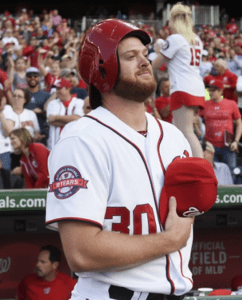Texas Gov. Rick Perry’s epic brain-freeze during a Republican primary debate is often referred to as a “gaffe.”
That’s a strange word that gets used strangely — it gets applied to simple misstatements and unintentional double-negatives, to brain-freezes like Perry’s, and to slightly off attempts to praise local culture — such as when a candidate in Philly orders a cheesesteak with provolone, like most natives do, instead of with Cheeze Wiz, like most non-native members of the media imagine most natives do.
None of those examples above are of any real consequence. Michele Bachmann’s inversion of the birthplaces of John Wayne and John Wayne Gacy wasn’t the kind of misstep that told us anything substantial about her merits as a candidate. Dozens of politicians who were well-informed about both countries have inverted the names of Iraq and Iran because that’s easy to do. And in every campaign, some sleep-deprived candidate will, like many an exhausted touring musician, greet a crowd of supporters by naming the wrong city. So what?
But such trivial incidents get lumped together into the category of “gaffe” along with other statements of a wholly different kind. Sometimes a candidate will speak candidly, voluntarily and intentionally saying something they fully understood and fully meant to say, and if that statement later comes back to haunt them it also gets categorized as a “gaffe.”
It’s not. A gaffe is a mistake. Such intentional and deliberate statements weren’t said by mistake. It may have been a mistake to say them out loud in public. It may have been a mistake to ever even think such things. But they weren’t said by mistake.
This is part of what’s broken in the way our political contests are conducted and covered. Think again of Rick Perry’s big “oops.” His temporary (anguishingly long, but only temporary) inability to remember the third Cabinet-level government agency he would eliminate was the focus of attention for days afterward and wound up seriously, maybe even fatally, damaging his candidacy. If he had remembered the names of all three agencies, that debate and the rest of his campaign would have gone very differently.
And that’s upside-down and backwards, because the thing that Rick Perry stumbled and bumbled trying to remember was that he wanted to eliminate the Department of Energy. Just months after the Fukushima disaster, Rick Perry voluntarily and deliberately chose to tell the American people that he wanted to get rid of the government’s role in nuclear safety, and yet the radically dangerous substance of what he tried to say was less damaging to his campaign then the fact that he stumbled in trying to say it.
In New Hampshire this week, Newt Gingrich said this:
If the NAACP invites me, I’ll go to their convention to talk about why the African-American community should demand pay checks and not be satisfied with food stamps.
If he had misspoken, forgetting the name of the NAACP or perhaps saying something like “NCAA” instead, then he’d be in the middle of a media circus and his campaign would take a hit as he became the butt of jokes until the next politician garbled some words.
But he didn’t misspeak. He said what he meant and he meant what he said.
Gingrich is insisting that this comment was taken out of context. Elsewhere in that same speech, he said that, “There’s no neighborhood I know of in America where if you went around and asked people would you your children have food stamps or pay checks, you wouldn’t have a majority saying they’d rather have paychecks.”
If that’s what he believes, then it’s not clear why he thinks the NAACP and “the African-American community” need him — Newt Gingrich — to explain to them “why” they should believe what they already believe, or what it is he thinks is unique and exceptional about black people that makes them — contradicting his other statement — “satisfied with food stamps.” He was invited to the Family Research Council’s convention, and he went, and yet he didn’t see any need while he was there to deliver a lecture “about why the white evangelical community should demand pay checks and not be satisfied with food stamps.” That’s a lecture he reserves for black people, and no matter what context he builds around that singling-out of “the African-American community” it won’t rescue him.
What’s amazing to me, as I said in the previous post, is that Gingrich’s primary opponents — Mitt Romney, Rick Santorum, Ron Paul and Rick Perry — haven’t jumped on this opportunity.
This is a free kick, an open goal, a hanging curveball, a giant fish in a teeny tiny barrel.
Newt Gingrich is their opponent. They are competing against him for a finite number of votes in a zero-sum contest. And he has just voluntarily and deliberately said something stupid and hateful.
Here is what you do when your opponent voluntarily and deliberately says something stupid and hateful: You pounce on it and you pound on it. You padlock it around his neck with a heavy chain and make him beg for the key. You make him own it or you make him disown it and you don’t relent until he does one or the other.
This is how campaigns work. This is what candidates do. Yet Mitt Romney has not done this. Rick Santorum has not done this. Ron Paul has not done this. Rick Perry has not done this.
Why not?












